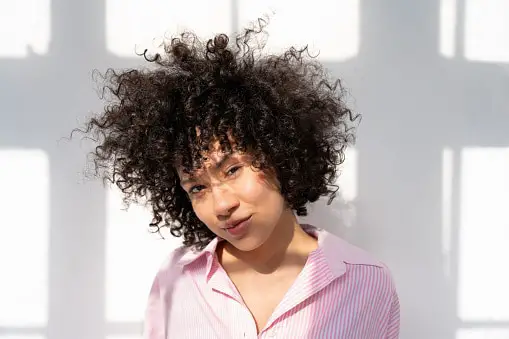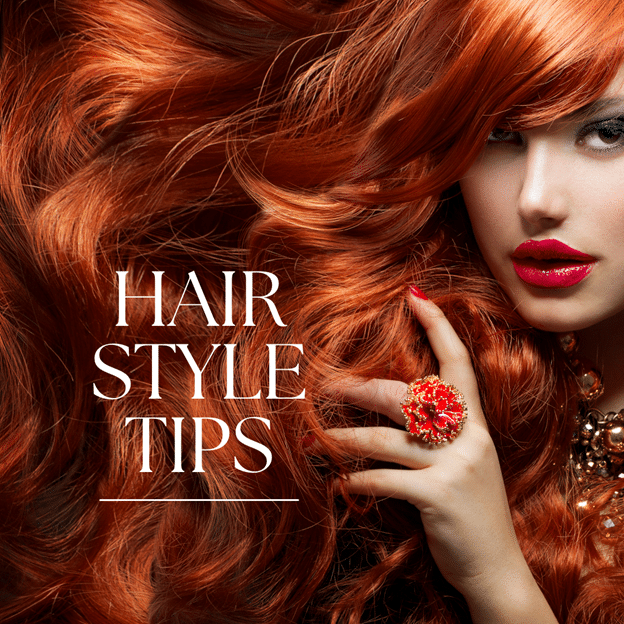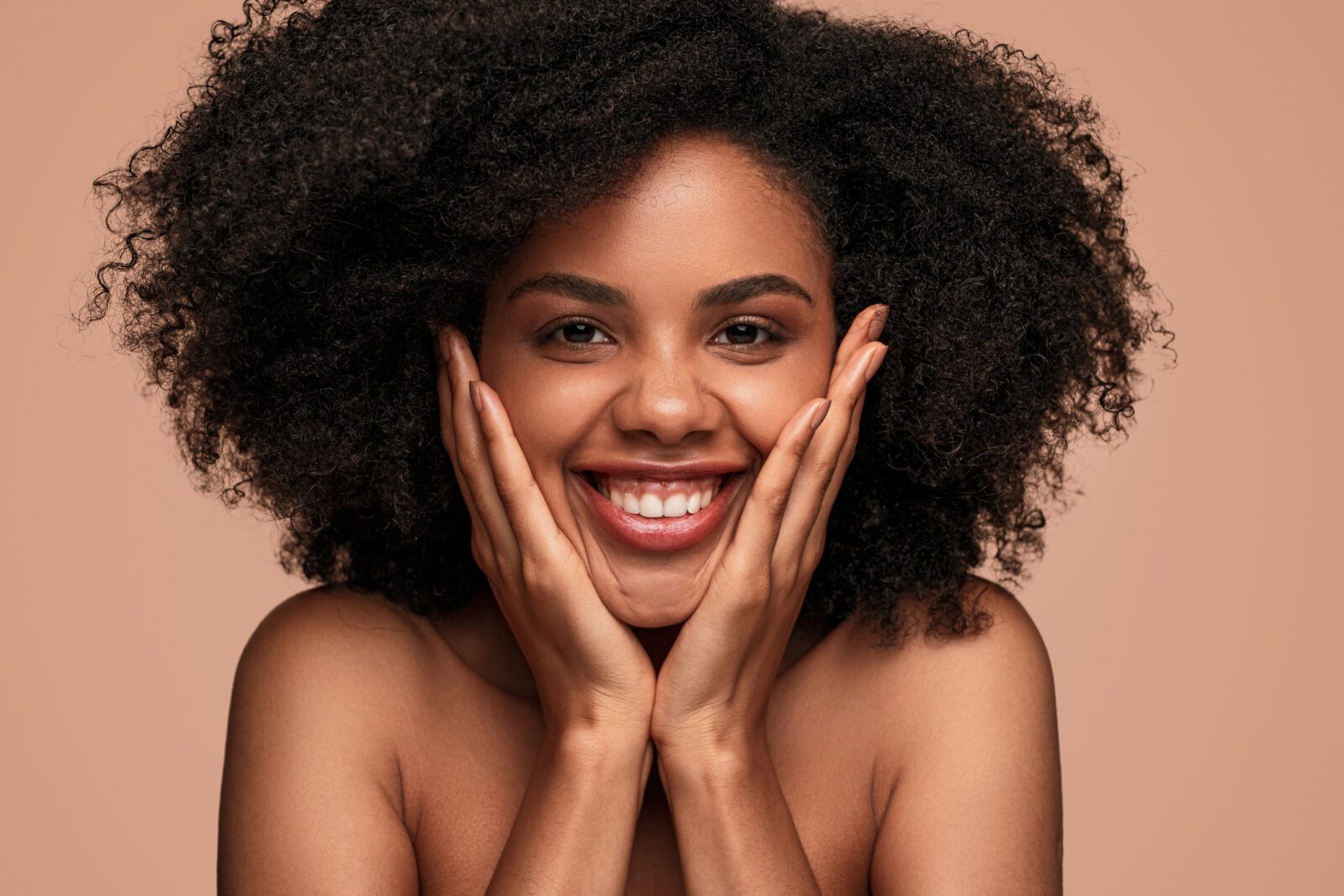
Another step on your natural hair journey is figuring out what hairstyle works best for you.
Those of us with curly or natural hair know all too well that it can be a challenge. We are most likely familiar with ‘the pyramid triangle’ hairstyle, the ‘Shaka Khan during the ‘80’s’ hairdo, the ‘it’s raining humidity ’ frizziness, etc. Don’t fret! Here are some suggestions for how to find your perfect style.
For your perfect style take into account your face shape, hair characteristics, lifestyle, best features you would like to highlight (such as your high forehead or razor-sharp cheekbones), and which you would like to minimize.
First, examine the shape of your face. Pull back your hair and study your face carefully. What is your most prominent feature? Is your face narrow or wide? Long or round?
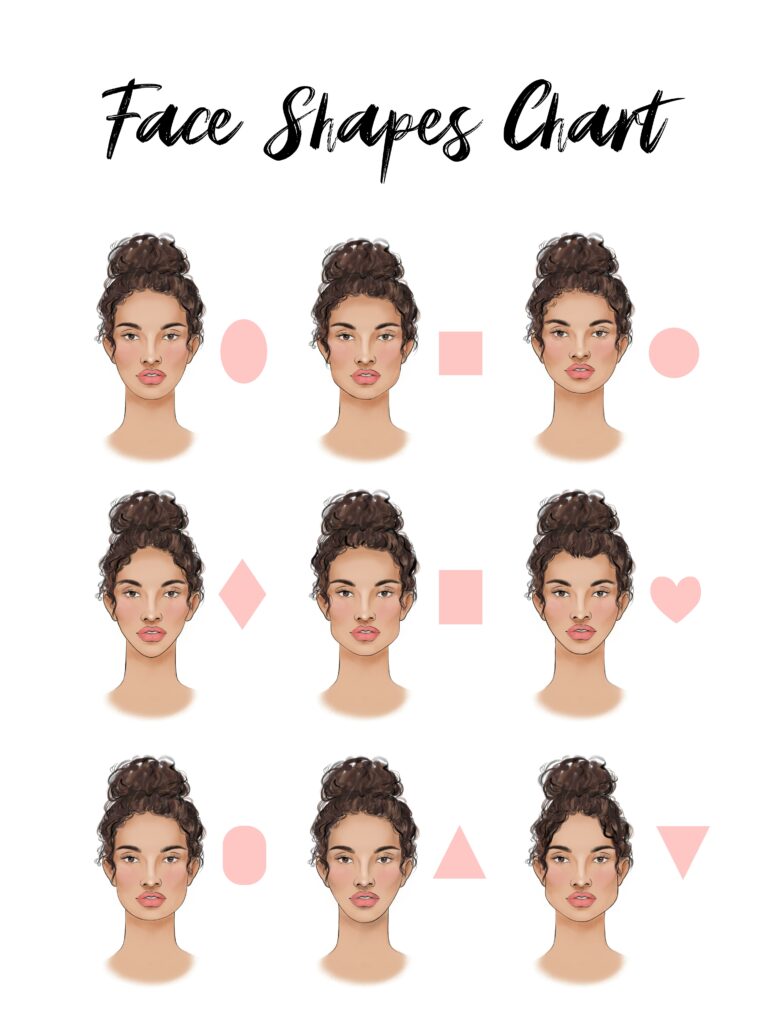
OVAL
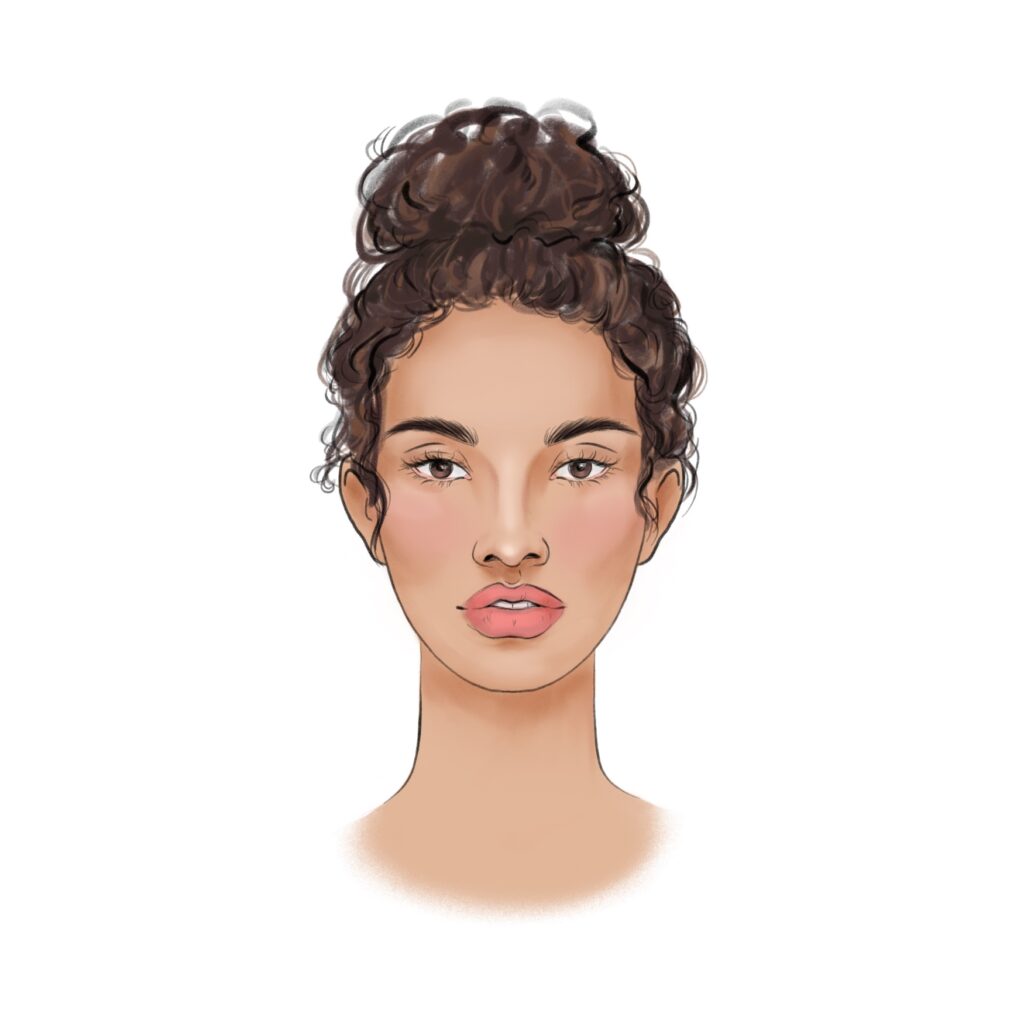
With an oval-shaped face, your features are naturally balanced and you can carry off almost any kind of hairstyle. However, you should take into account the texture of your hair, for example, bangs will never lay flat if you have thick coily hair – be prepared before you make the cut?
ROUND
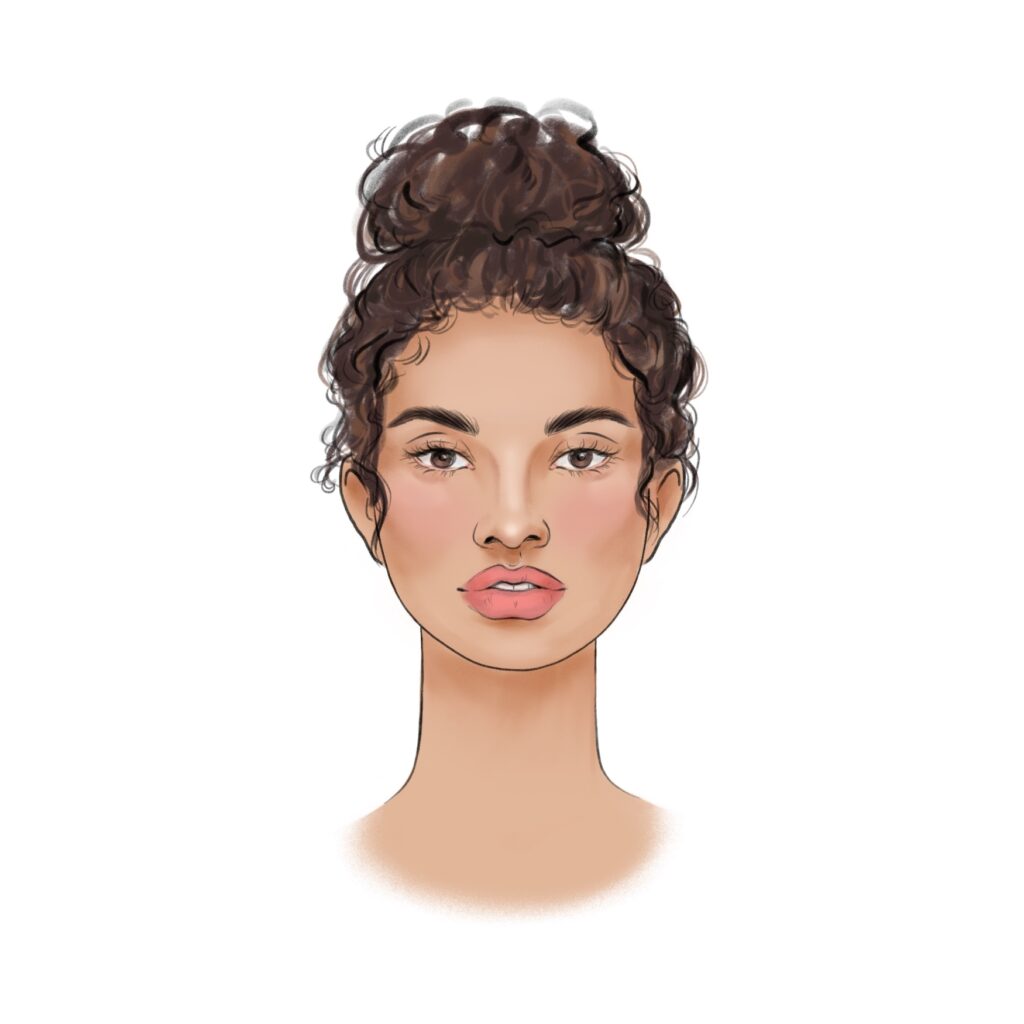
Round faces are often wide with either a rounded hairline, a round chin, or a wide face. Haircuts that emphasize the sides of the face will make your face appear rounder. This includes hairstyles that add volume to the sides of your face. If you wish to elongate your face, go instead for a long and sweeping style with layers that frame the sides of your face. These layers should ideally be below the chin. A middle part can also help elongate your face.
OBLONG
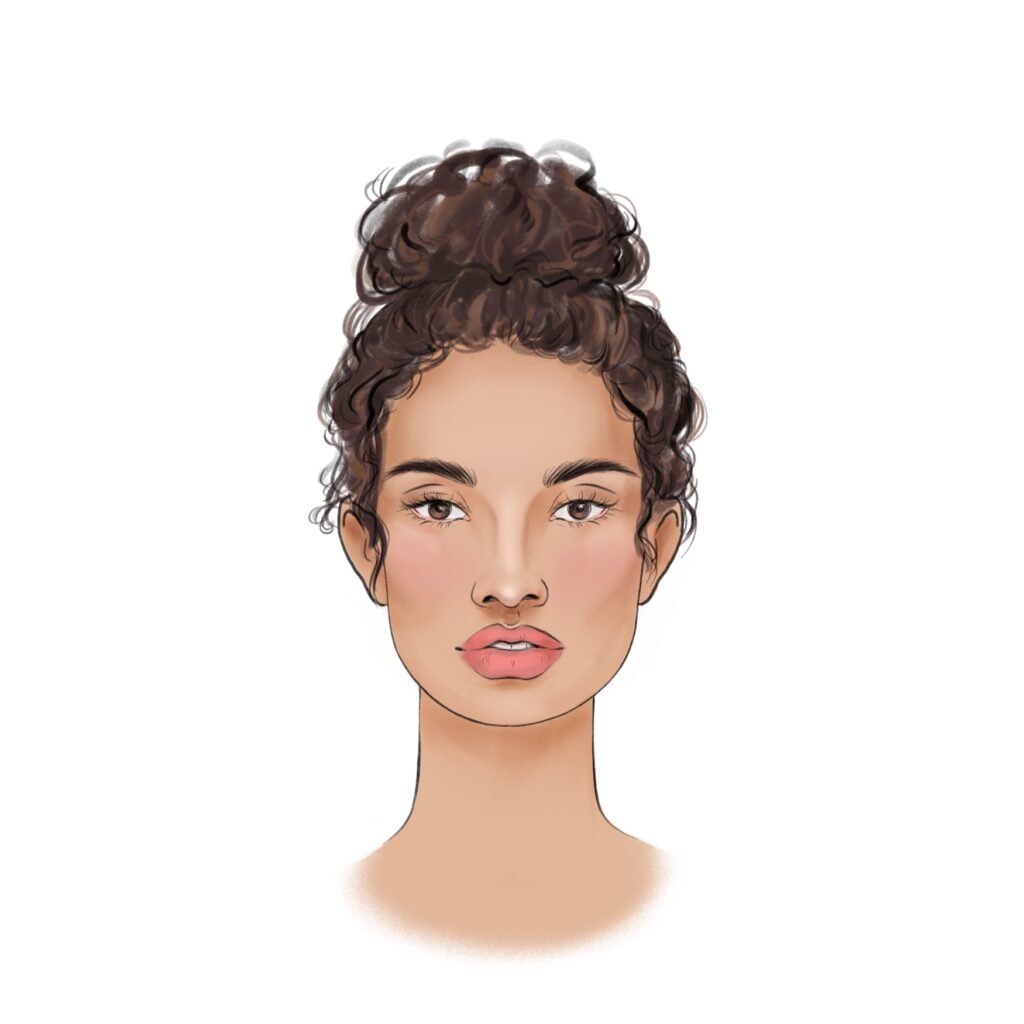
When it comes to hairstyles, if you wish to make your face less elongated and more round, add more volume to the sides of the face. Think tresses that are long, layered, and full or shorter chin-length cuts with plenty of volume. Curly hair will give you a lending hand with shorter hairstyles as they will be more voluminous adding roundness to the face.
SQUARE
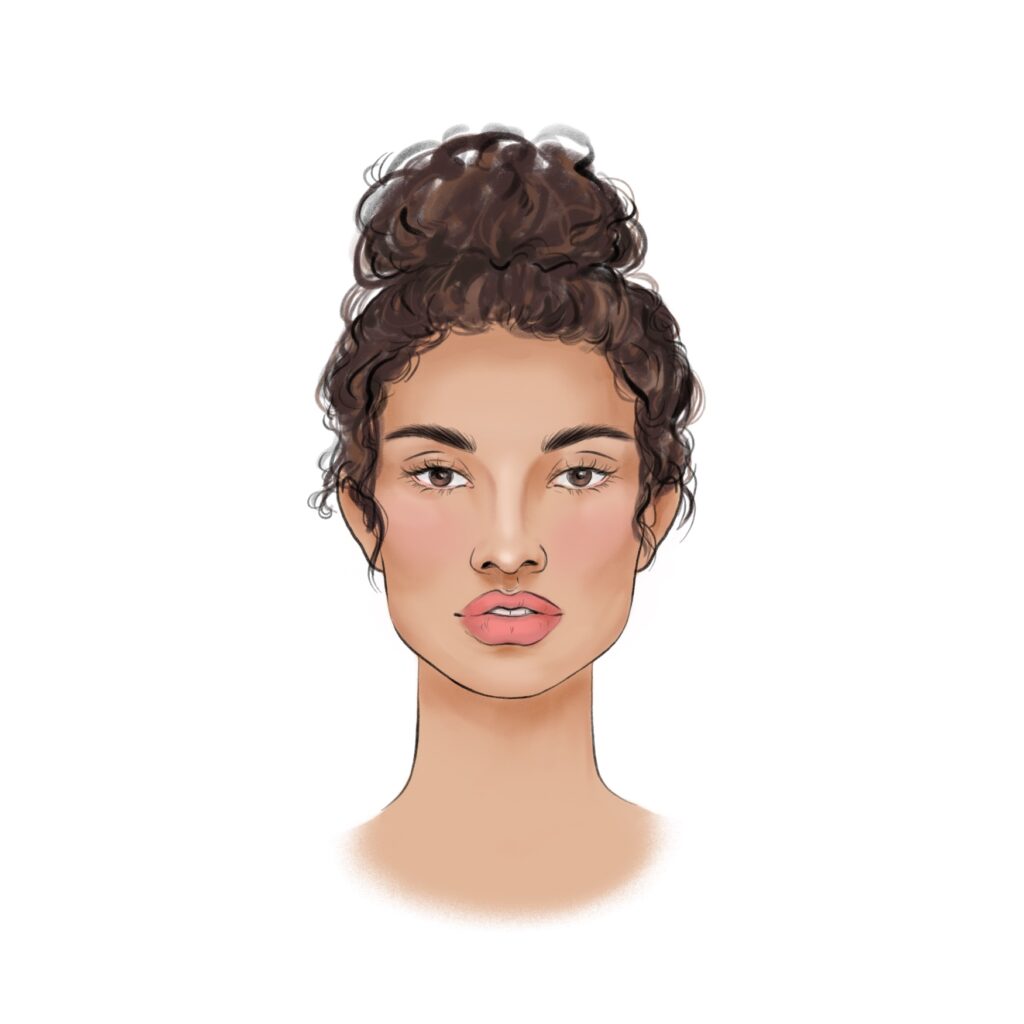
If you have a square-shaped face with a beautiful jawline you can emphasize this by going for a short hairstyle above the jawline. On the other hand, if you want to soften your features, then a long haircut covering the sides of the face will accomplish this.
RECTANGLE
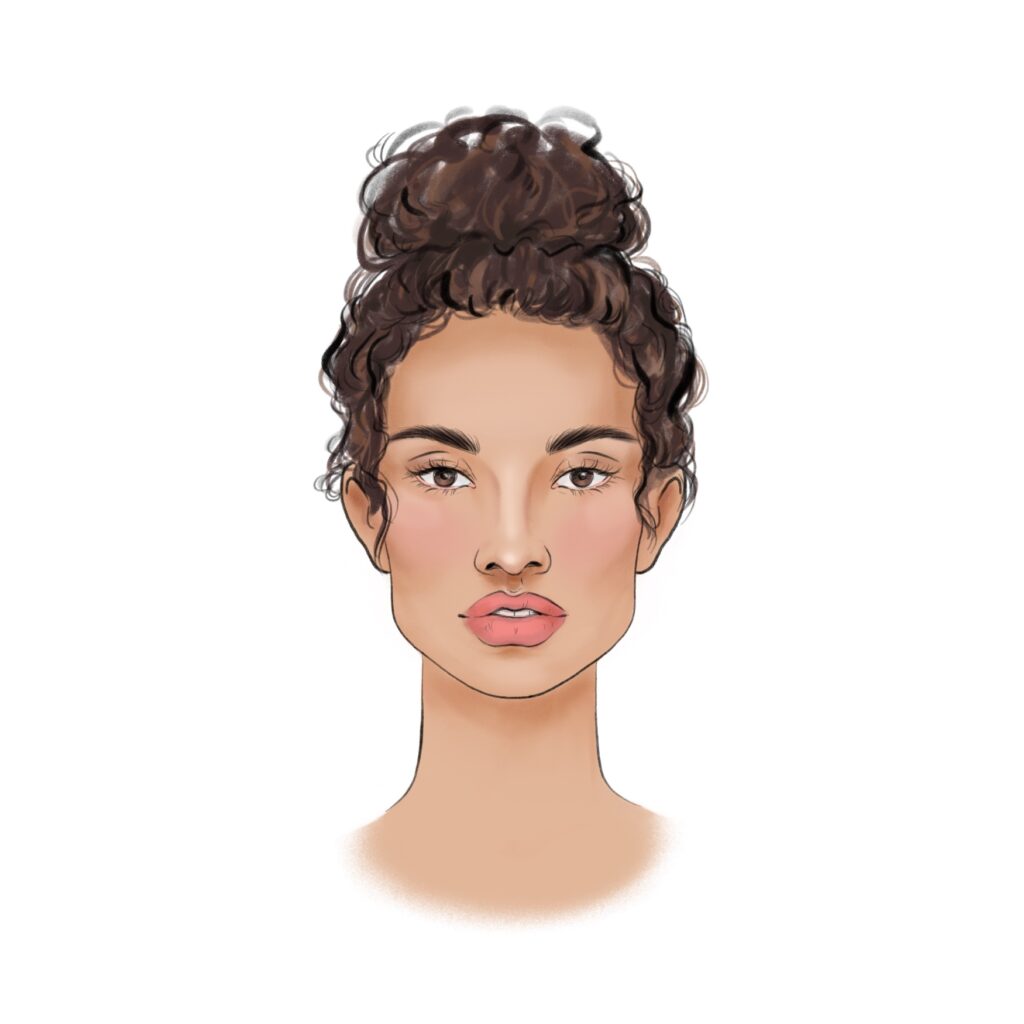
If you have a rectangle-shaped face, you may want to focus more attention on the top of the head. Depending on which feature you would like to emphasize or hide, try going for short and voluminous styles, side partings, or asymmetrical bobs. Styling your hair with plenty of volume on top will also achieve a great look.
HEART
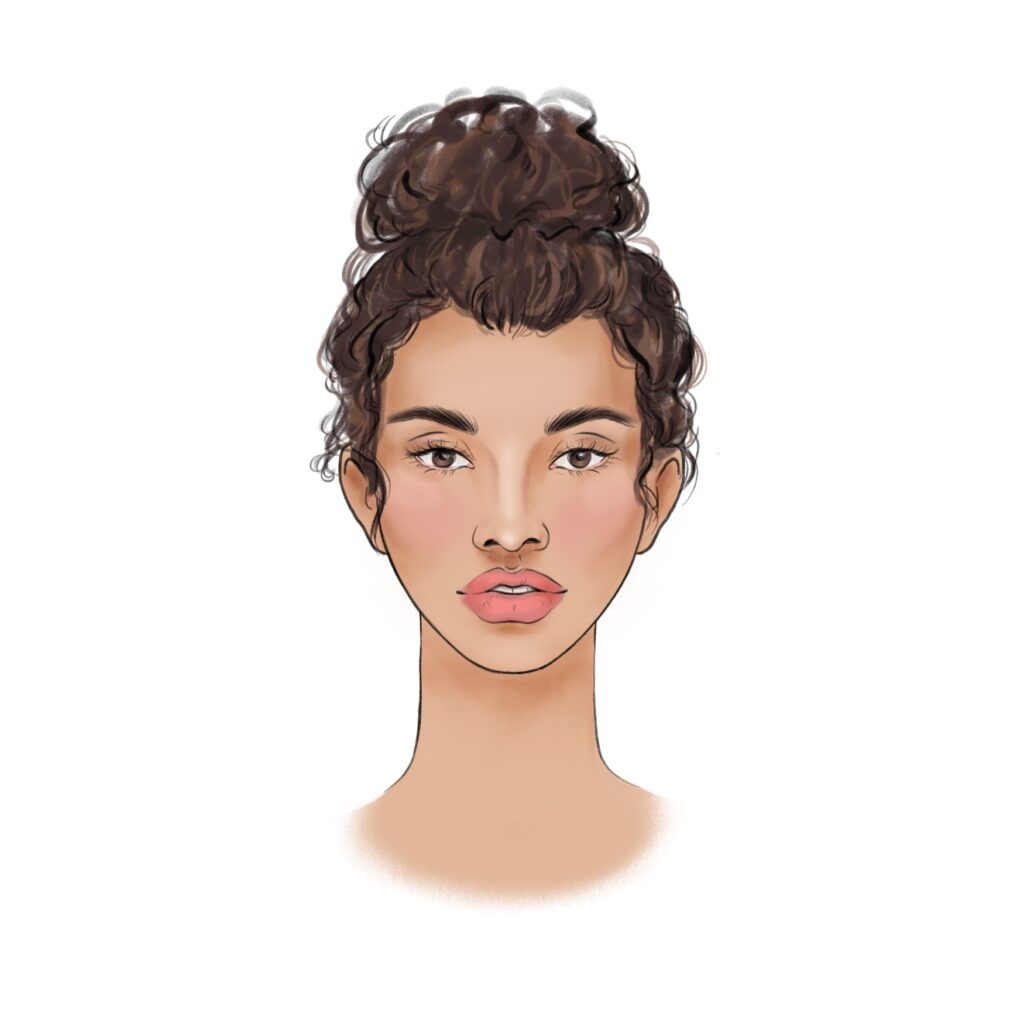
Heart-shaped faces have a wide forehead and a narrowing chin. For you, styles with more volume around your neck will look great. Think bouncy beautiful curls framing the sides of your face to create symmetry.
DIAMOND
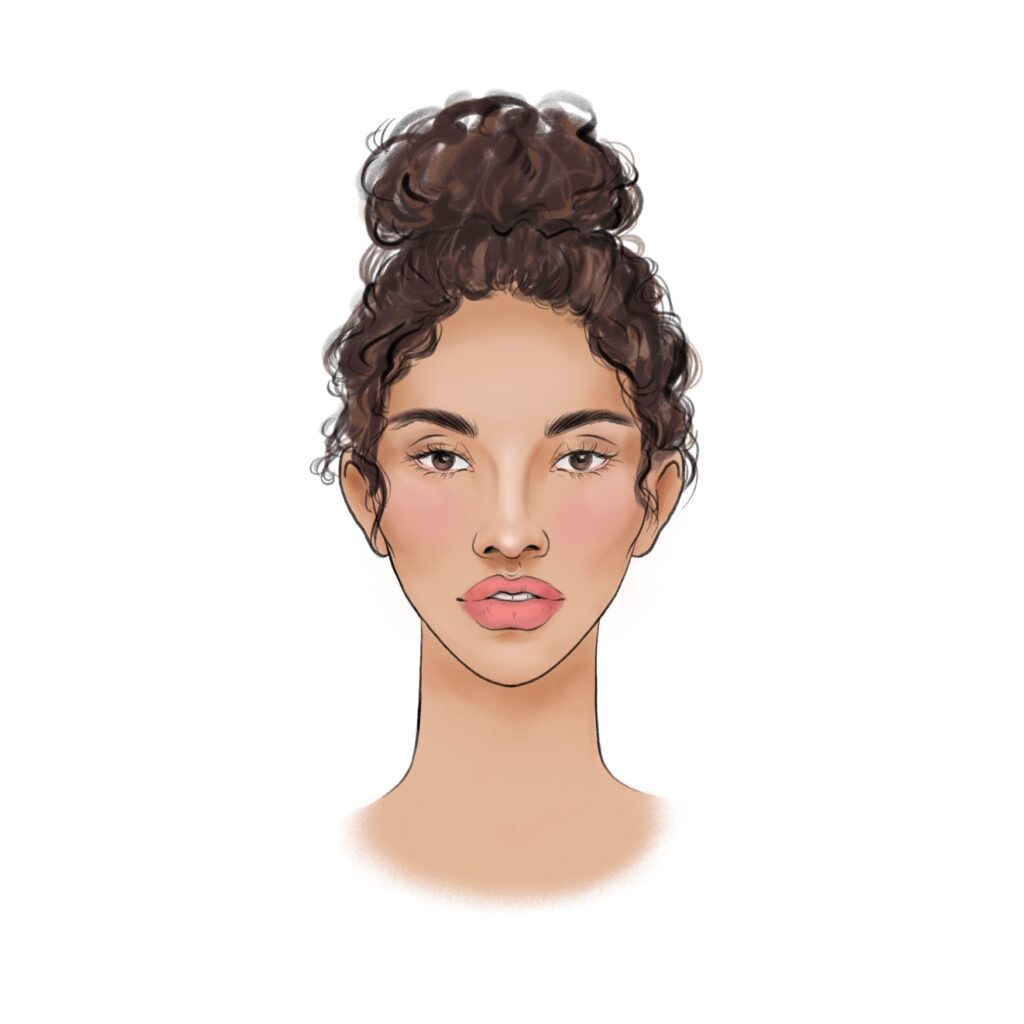
The diamond shape is characterized by a narrow forehead and chin with lovely, well-defined, high cheekbones. Try highlighting those fabulous cheekbones by adding fullness above the cheekbones. If you go for beautiful fringes, make sure to have them fall sideways above the cheekbones.
TRIANGLE
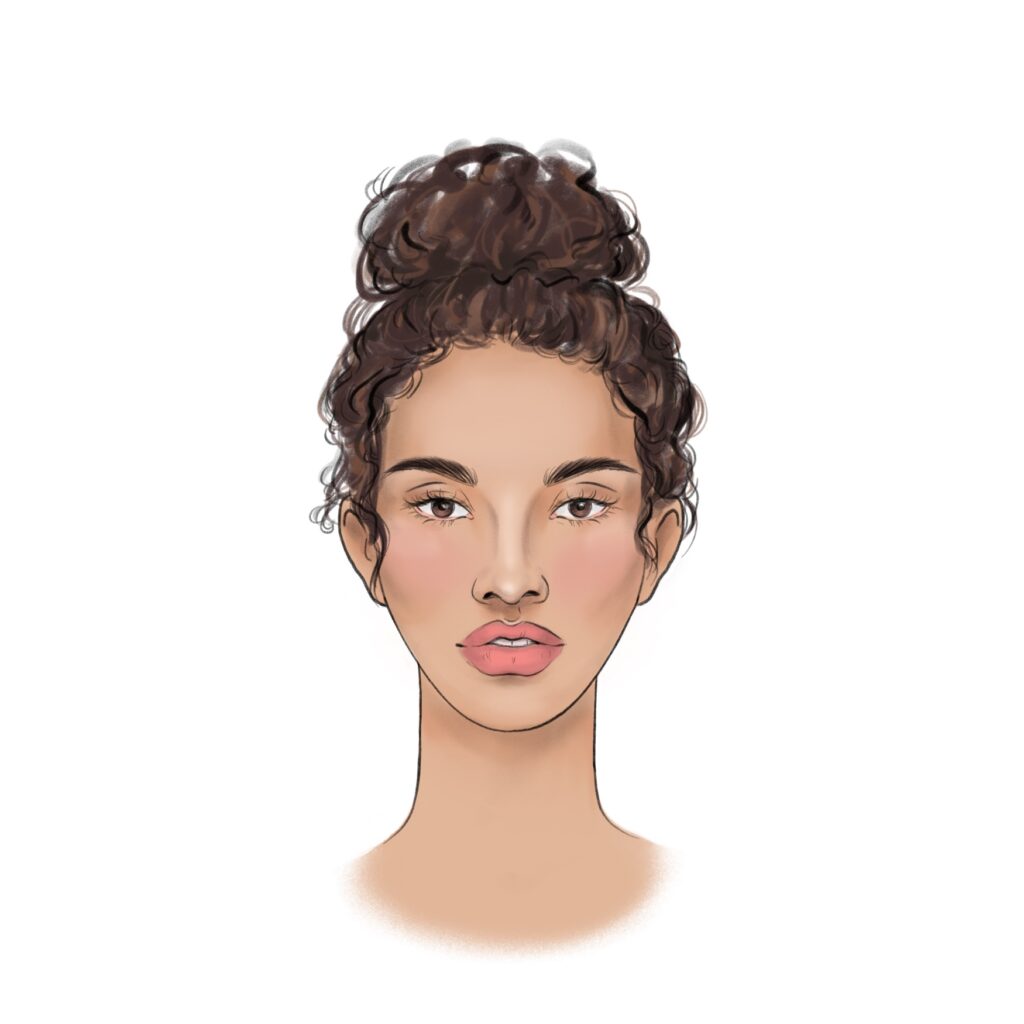
Triangle-shaped faces are considered more feminine. A wide, open forehead and a face that tapers to a narrow jawline are flattered by hairstyles that camouflage the hairline and give width towards the chin. Gathering the curls to one side of the face often flatters this face type. For example, the asymmetrical bob cut with an off-center parting, gathering the curls to one side or both sides, adds some lift at the top of the head. This cut and style specifically add some volume at the chin area which widens the lower portion of the face. The off-center parting and asymmetrical lengths on the sides help to draw focus away from the wide-set eyes and mouth.
INVERTED TRIANGLE
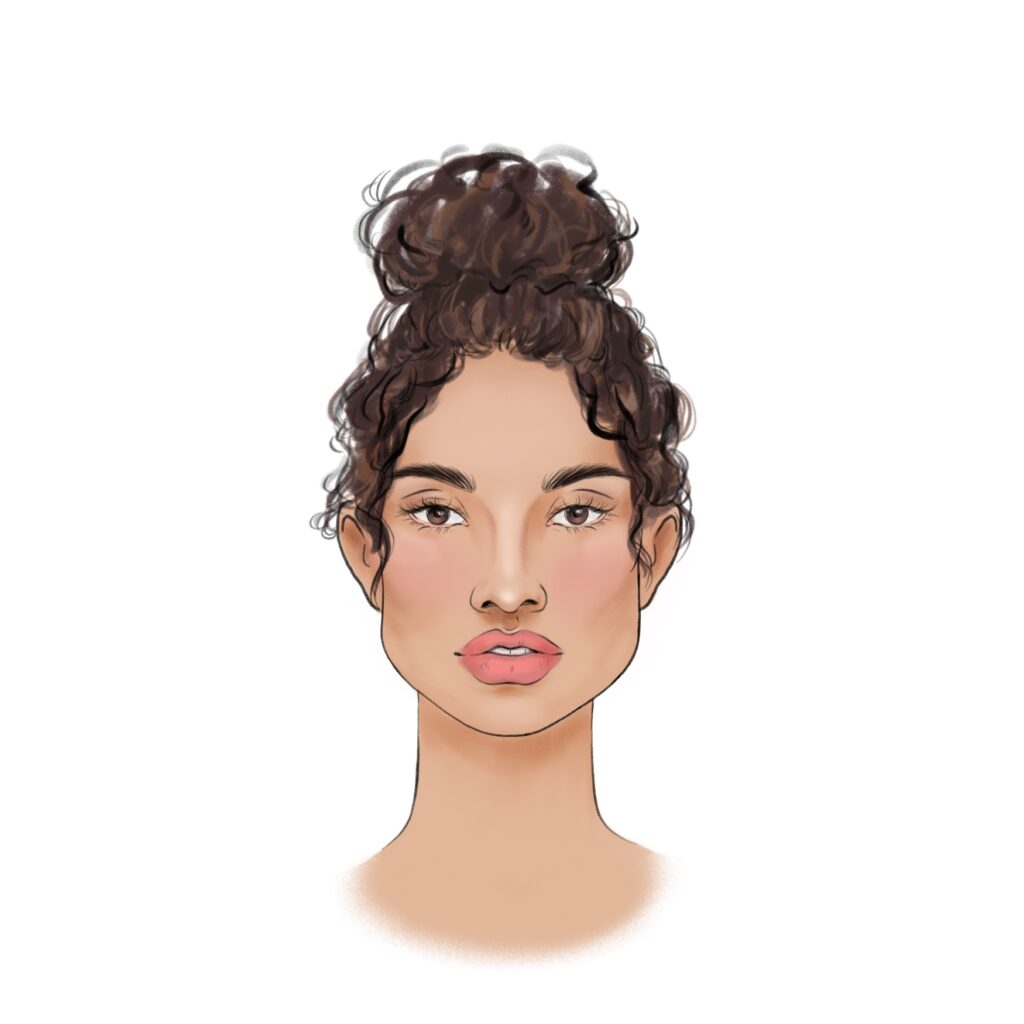
If you have an inverted triangular face, chances are your forehead is a bit wider and your chin is prominent. Styles for your face shape need to add value to that gorgeous chin and take attention away from the wideness of your forehead. One option is, you could go for a long and layered look, with layers beginning at chin level and no bangs. Or, if you want it on the shorter side, a cutting style that leads to one length with short to long layers through the back and sides, will create body and bounce. This curly hairstyle can be quite attractive for triangular faces because the layered back and sides allow for the curls to fall onto the jaw and chin, creating a softer look.
Side Profiles
Another important factor to consider is your side profile. There are three recognized profiles: concave, convex, and straight.
CONCAVE
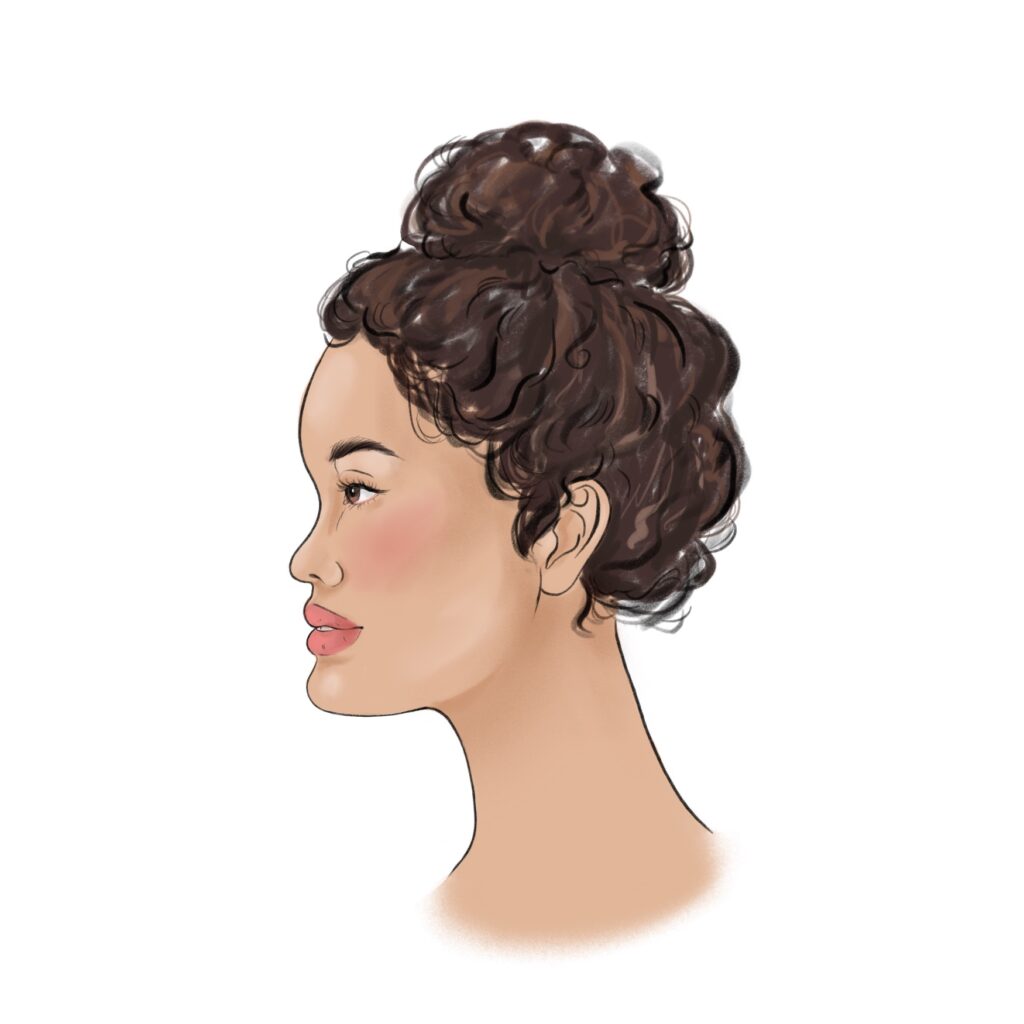
CONVEX
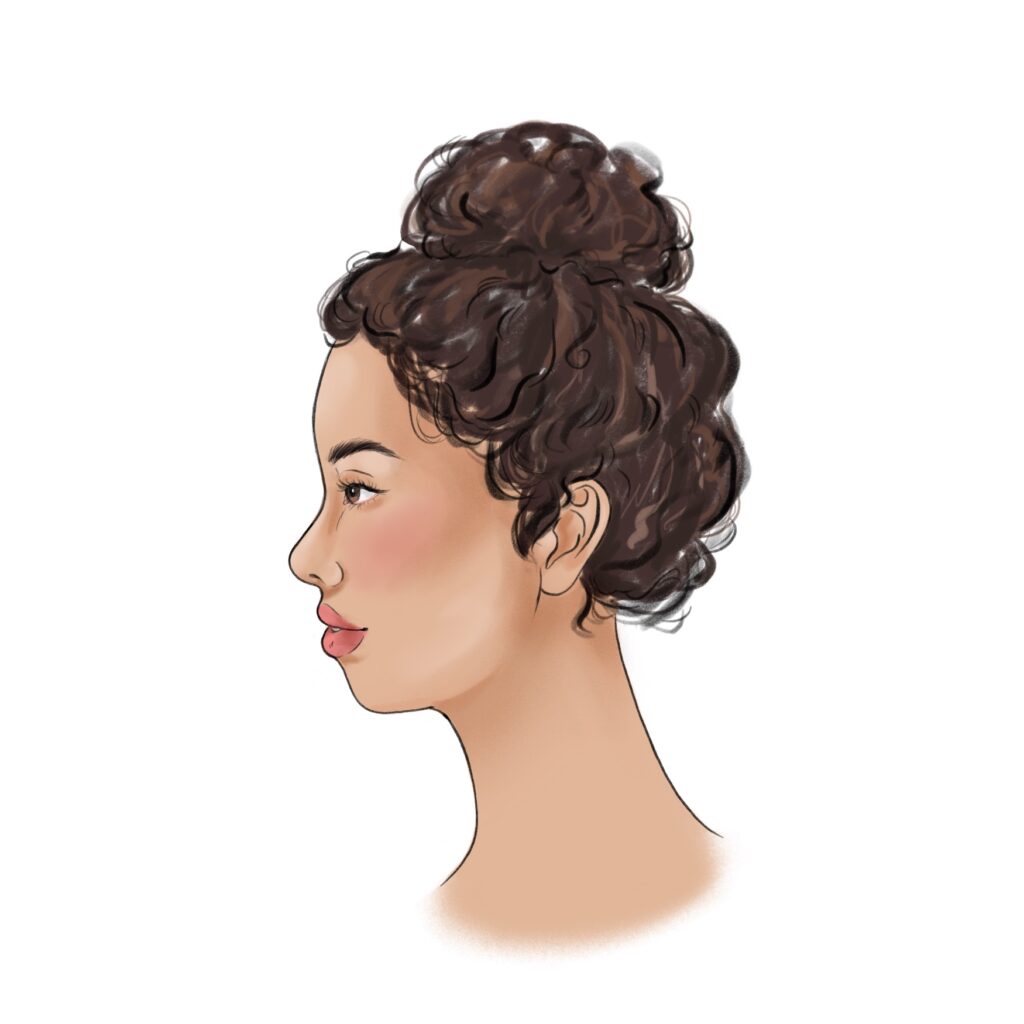
STRAIGHT
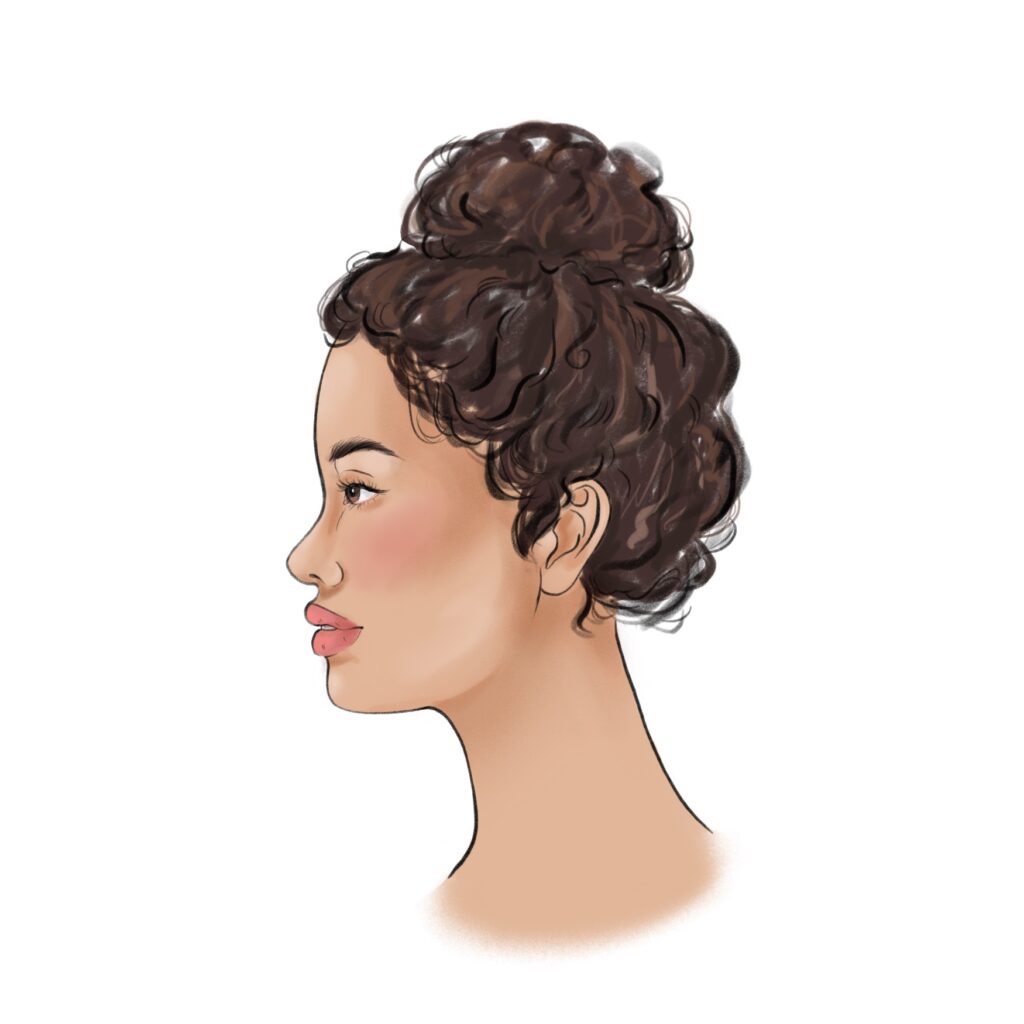
Remember what you would like to draw attention to, as well as what you would like to draw attention away from. You can use your curls to create or reduce volume to emphasize or soften your forehead, nose, and/or chin.
Now that you have chosen your perfect style, let’s consider your hair texture.
Can your hair actually hold that style?
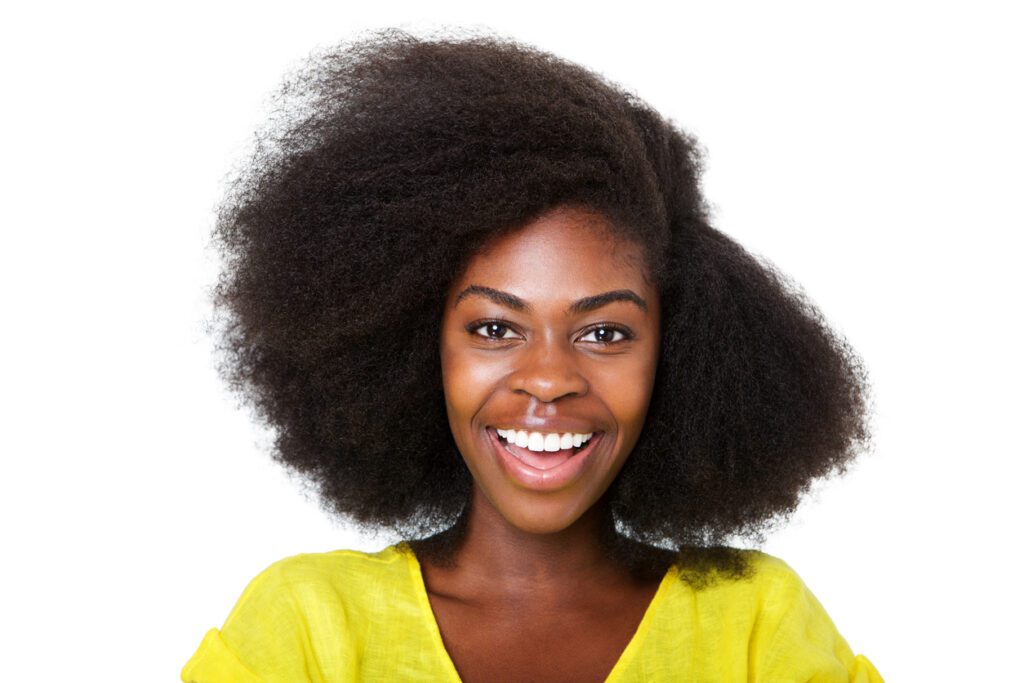
If you have fine or thin hair, you can almost see your scalp. There are some styles that are invariably going to work better for you such as going short. Short, bouncy styles above the shoulders will provide more volume.
Medium or normal hair can hold most styles.
Thick and luscious hair looks good with a medium-length hairstyle. Shorter styles may create too much volume while longer hairstyles could weigh you down or be overpowering. A medium-length style with or without layers will give you movement and lightness.
Maintenance
Short structured hairstyles require a lot of work and maintenance. They also require frequent cuts which can quickly add up in terms of cost. Longer hair requires fewer haircuts but requires more product.
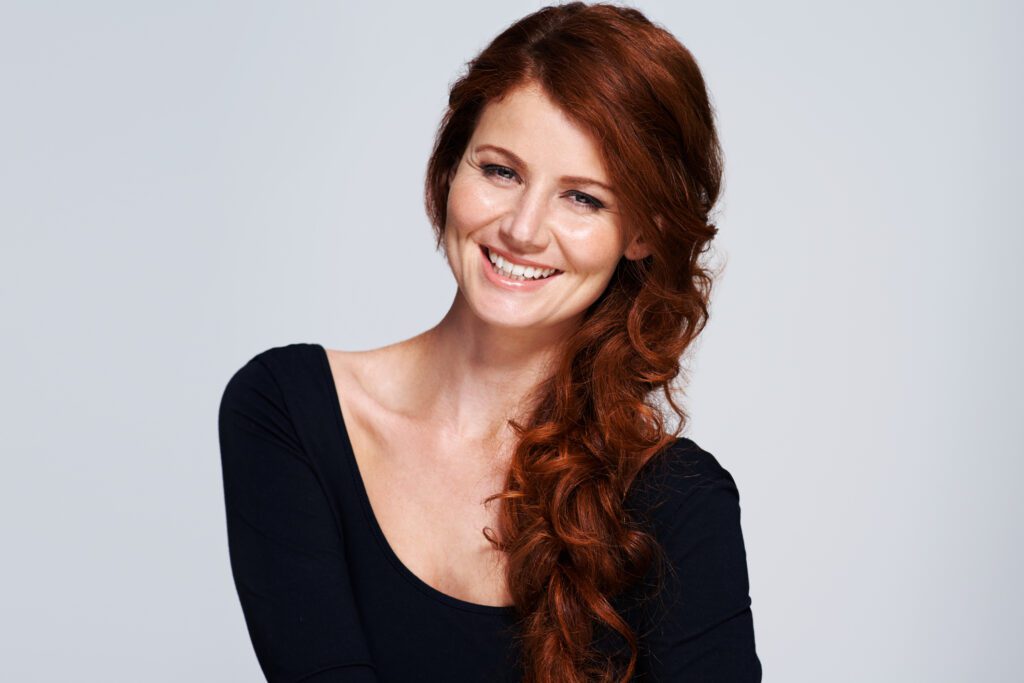
Side, middle, or no part?
And finally, some parting words…
How you part your hair can make a significant difference in how you look.
If you want to widen your face and bring more focus to its distinctive features, go for a side part. However, if you want to make your face look slim or elongated go with a middle part. Diagonal parting adds an extra bit of style and glam. Or, simply go with no part at all, drawing your hair back to add symmetry.
Whatever you do, celebrate and embrace your natural hair.


